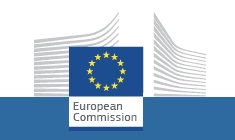The European Commission is planning a series of far-reaching reforms this year to support the formation of a pan-European telecoms market, according to the FT. Talking to the newspaper in an interview published yesterday, Neelie Kroes, a VP of the EC and Commissioner for the digital agenda, said: “We’re working on a range of measures to create common and stable conditions across the EU for telecoms competition, investment and growth, which should also make cross-border consolidation more attractive.
“Various forms of asset sharing can promote competition and investment – regulated access to dominant infrastructure on terms that support further investment by all players, access to other utilities’ infrastructure on reasonable terms [and] sharing of wireless assets such as masts or spectrum under clear conditions.”
The Commission is looking for a way to streamline and reduce the complexity of Europe’s telecoms landscape — which has more than 27 telecoms regulators, and more than 100 carriers, making it a far more complex mosaic than is found in other geographies such as the U.S. and China. Ultimately, the Commission wants to foster a simpler operating environment for telcos to encourage them to focus on investing in upgrades such as 4G/LTE network (which marry with the EC’s own regional digital aims).
The paper reports that the EC will be giving more guidance during 2013 on the scope for network-sharing by telecoms competitors — “including pooling infrastructure” — to help carriers speed up the rollout of 4G/LTE.
However, late last week Competition Commissioner Joaquin Almunia was reported to have refuted an earlier suggestion that he was supportive of the idea of creating a pan-European telecoms network. On Thursday EuroPolitics quoted Almunia’s spokesman saying he “neither initiated, suggested or endorsed any plans by these operators to pool their infrastructure or share their networks”, adding: “As the competition authority, the Commission always assesses effects on competition on a case-by-case basis, in line with applicable rules and procedures.”
It is not clear whether there is disagreement between Almunia and Kroes on fostering a pan-European telecoms market. We’ve reached out to Almunia’s office to request clarification of his position and will update this article with any response.
According to the FT, while Kroes wants to harmonize the European telecoms market further, she is not considering “pushing for the creation of a single telecoms regulator at this stage” — but instead wants to strengthen co-operation between the EC and national regulators.
As part of its planned reforms, the EC also wants to make it easier for telcos to access a range of other infrastructure such as sewage ducts and railway tracks — something fixed-line broadband providers have made use of to build out networks more cheaply — as well as existing networks used by non-dominant telecoms companies, in order to bring down the cost of network building.
“The ability . . . to deliver broadly harmonised regulation and a truly common EU telecoms market will be tested this year as never before,” Kroes told the paper.
Sources close to the matter have confirmed to TechCrunch that while there has been no formal meeting to discuss the creation of a pan-European shared network between Europe’s major telcos, the topic was discussed during a meeting of major carriers late last year at which Almunia was present.
The current level of discussions is couched as extremely preliminary — with telcos first needing to fully understand the technical and regulatory challenges that creating a pan-European network would entail before determining whether it is even feasible and therefore whether to enter formal discussions.
